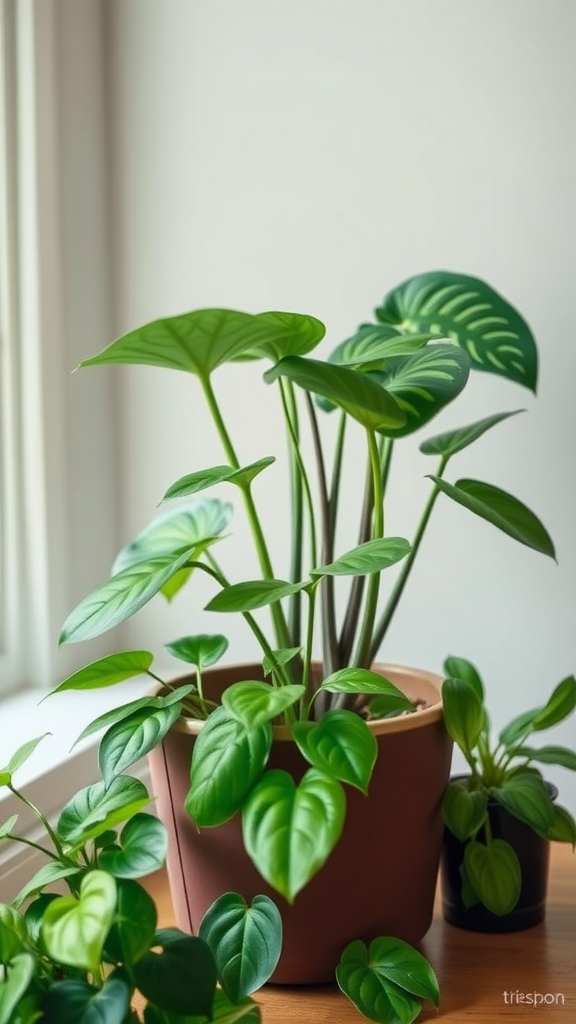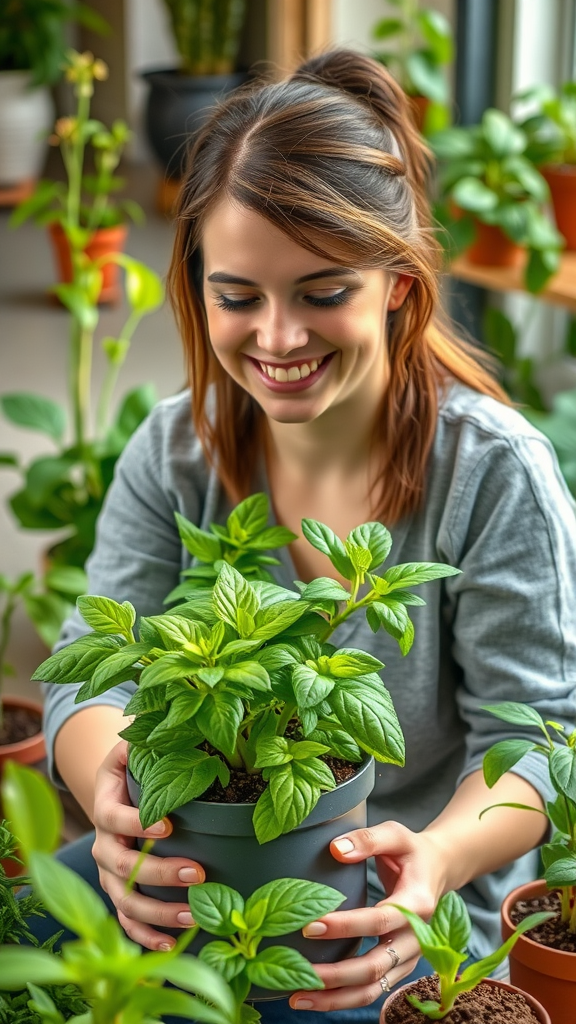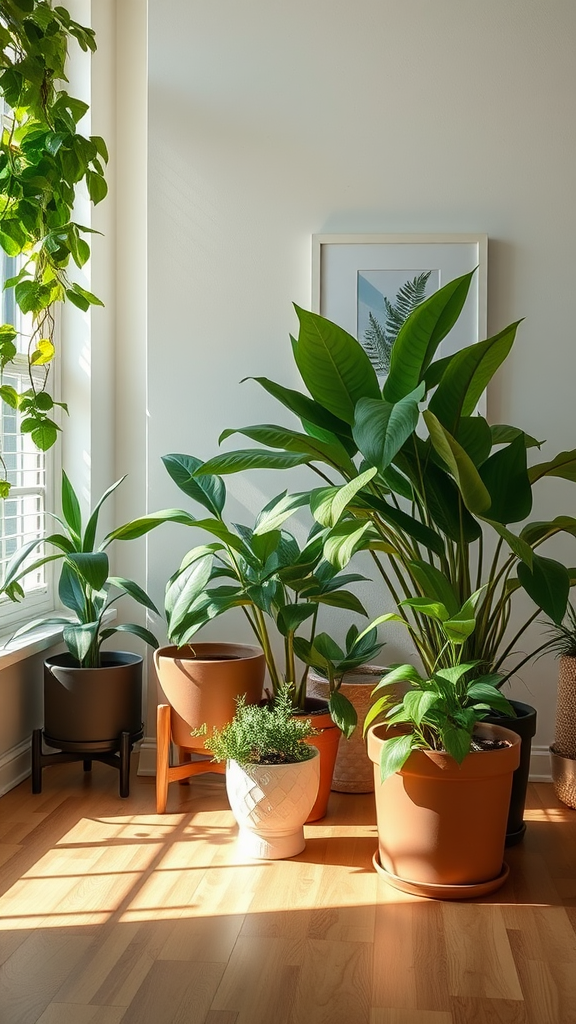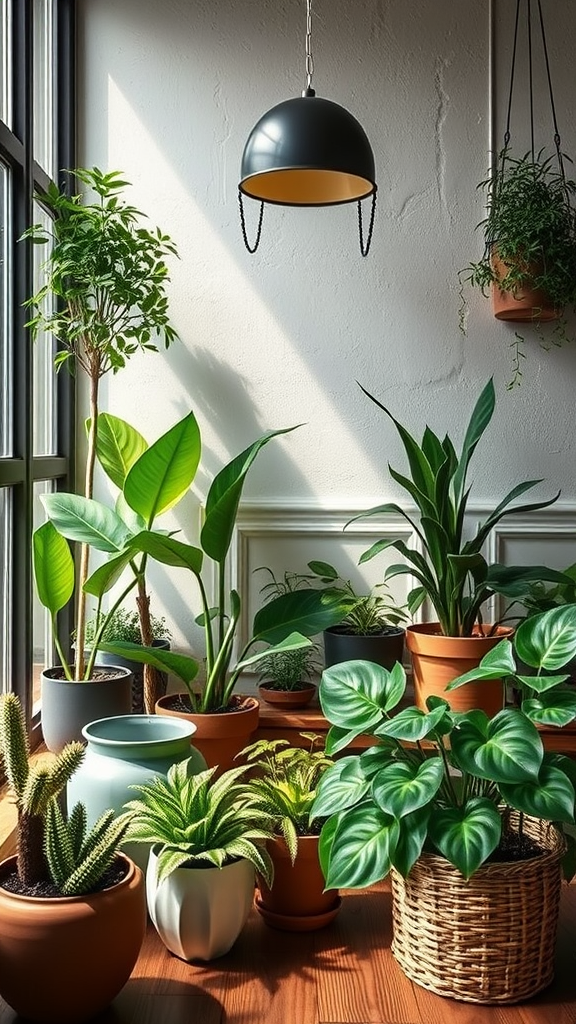Essential Houseplant Care Tips Every Plant Parent Should Know
Bringing houseplants into your home can be rewarding, but they do require a little care to thrive. If you’re a plant parent, understanding some essential care tips will help you keep your green friends healthy and vibrant. Here are seven key tips that every plant parent should know.
1. Understand Your Plant’s Light Needs
Different houseplants have varying light requirements. Some thrive in bright, direct sunlight, while others prefer indirect light or shade. Before positioning your plant, consider its light needs:
- Bright Direct Light: Cacti and succulents.
- Indirect Light: Snake plants and pothos.
- Low Light: ZZ plants and peace lilies.
Evaluate the natural light in your home and place your plants accordingly to help them flourish.
2. Water Wisely
Overwatering is a common mistake among plant parents. It can lead to root rot, which can be fatal for your plant. To ensure proper watering:
- Check the top two inches of soil; if it’s dry, it’s time to water.
- Always use pots with drainage holes to prevent water accumulation.
- Different plants need different amounts of water, so learn the specific needs of each variety.
Consistency is important, but be mindful of your plant’s unique requirements.
3. Choose the Right Soil
Not all potting soils are created equal. The soil type you choose can greatly affect your plant’s health. Look for a potting mix that matches your plant’s needs:
- Succulents and Cacti: Well-draining soil to prevent moisture buildup.
- Tropical Plants: A soil mix that retains moisture.
- Orchids: A special orchid mix that offers excellent drainage.
Choosing the right soil can enhance your plant’s growth and overall health.
4. Maintain Humidity
Many houseplants, especially tropical ones, thrive in high humidity. To create a suitable environment, consider these tips:
- Group plants together to create a microclimate.
- Use a humidity tray with water and pebbles.
- Consider using a humidifier during dry seasons.
Ensuring your plants have enough humidity can help prevent brown tips and promote healthy growth.
5. Fertilize Appropriately
Plants need nutrients to grow strong and healthy. Fertilizing should be done thoughtfully:
- Use a balanced, water-soluble fertilizer.
- Follow the instructions on the label regarding dilution and frequency.
- Fertilize during the growing season (spring and summer) while reducing or stopping in the fall and winter.
Feeding your plants regularly will give them the boost they need during their active growth periods.
6. Prune and Clean Your Plants
Regular maintenance helps your plants look their best and stay healthy. Here’s how to do it:
- Remove dead or yellowing leaves to prevent disease spread.
- Dust leaves gently with a damp cloth to enhance photosynthesis.
- Prune to encourage bushier growth and remove any leggy stems.
A bit of housekeeping can make a significant impact on your plant’s health and appearance.
7. Watch for Pests
Even the healthiest plants can attract pests. Here’s how to keep a lookout:
- Regularly inspect your plants for signs of pests like spider mites and aphids.
- Isolate infested plants to prevent spreading.
- Use natural remedies such as neem oil or insecticidal soap to treat pests.
Proactive care will protect your plants and keep them thriving for years to come.
Being a plant parent can be both fun and fulfilling. By following these seven essential houseplant care tips, you can create a nurturing environment for your green companions. Remember, every plant is unique, so take your time to understand their specific needs. Happy planting!
Common Mistakes New Plant Parents Make and How to Avoid Them
For those venturing into the world of houseplants, the journey can beBoth exciting and daunting. As a new plant parent, you might find yourself grappling with challenges that come with caring for your green companions. To help you thrive on this green journey, let’s explore some common mistakes new plant parents often make and how to steer clear of them.
Overwatering Your Plants
One of the most prevalent errors new plant parents make is overwatering. It’s a common misconception that more water equals healthier plants. In reality, too much water can lead to root rot, a condition that can be fatal for your plant.
How to avoid it:
- Always check the moisture level of the soil by sticking your finger about an inch deep into the soil. If it feels dry, it’s time to water.
- Use pots with drainage holes to ensure excess water can escape.
- Select the right type of soil that promotes good drainage.
Ignoring Natural Light Requirements
Each plant thrives in specific lighting conditions. Some enjoy bright, indirect light, while others prefer low light. New plant parents often underestimate the importance of matching their plant to its light requirements, leading to unhealthy growth.
How to avoid it:
- Research the natural habitat of your plant to determine its light needs.
- Observe how light moves through your home throughout the day to find the best spot for your plants.
- Consider using grow lights if natural light is insufficient.
Neglecting Humidity Levels
Many houseplants, especially tropical varieties, thrive in higher humidity levels. New plant parents might overlook this, leading to brown edges on leaves or stunted growth.
How to avoid it:
- Invest in a humidity meter to monitor levels.
- Use a humidifier or place a water tray with pebbles under your pots to increase humidity.
- Group plants together to create a microclimate with higher humidity.
Using the Wrong Fertilizer
Fertilizing your plant is essential for growth, but using the wrong type of fertilizer can cause more harm than good. Many new plant parents either over-fertilize or choose a fertilizer that doesn’t match their plant’s needs.
How to avoid it:
- Research the specific fertilizer requirements for your plants.
- Understand the difference between slow-release and water-soluble fertilizers, and apply them as needed.
- Follow the instructions on the fertilizer package closely to avoid over-fertilizing.
Failing to Repot
As plants grow, they outgrow their pots. Neglecting to repot can lead to root binding, where the roots become cramped and the plant cannot absorb nutrients properly.
How to avoid it:
- Check your plant annually to see if it needs repotting.
- Choose a pot that is only one size larger to avoid overwhelming the plant.
- Use fresh potting soil to provide new nutrients.
Ignoring Pests
Houseplants can attract pests such as spider mites, aphids, and mealybugs. If left unchecked, these invaders can cause significant harm to your plants.
How to avoid it:
- Regularly inspect your plants for signs of pests like webbing or sticky residue.
- Keep the leaves clean by gently wiping them down to dislodge pests.
- Consider natural pest control methods, such as neem oil or insecticidal soap.
Not Being Patient
Plants need time to acclimate and grow. New plant parents often become disheartened if they don’t see immediate results. Remember, plants can take time to respond to the care you provide.
How to avoid it:
- Adopt a mindset of patience and observation.
- Document your plant’s growth to celebrate its progress over time.
- Learn from each experience—every plant has its unique journey.
By avoiding these common pitfalls, you can cultivate a thriving collection of houseplants. Embrace the journey of plant parenthood, and remember that each mistake is an opportunity to learn and grow alongside your leafy friends!
Conclusion
Caring for houseplants can be a rewarding journey filled with growth, both for your plants and yourself. Armed with essential care tips, you’ll be better prepared to nurture your green companions. Remember, providing the right amount of water, light, and nutrients is crucial. Each plant has its unique needs, so make sure to research and tailor your care routine to fit those requirements.
Avoiding common mistakes is equally important for your success as a plant parent. Overwatering, placing your plants in low light conditions, or neglecting to repot them can lead to problems that can be easily prevented. By learning to recognize the signs of stress in your plants—like yellowing leaves or drooping stems—you’ll be able to address issues before they escalate.
Engaging with your plants daily not only allows you to monitor their health but also strengthens your bond with them. Take the time to enjoy the process and celebrate each new leaf or bloom as a sign of your dedication.
As you grow in your journey as a plant parent, remember that trial and error is part of the process. Embrace the lessons learned along the way and share your experiences with fellow plant lovers. With the right knowledge and a little patience, your indoor garden can flourish, transforming your space into a vibrant sanctuary. Happy planting!





